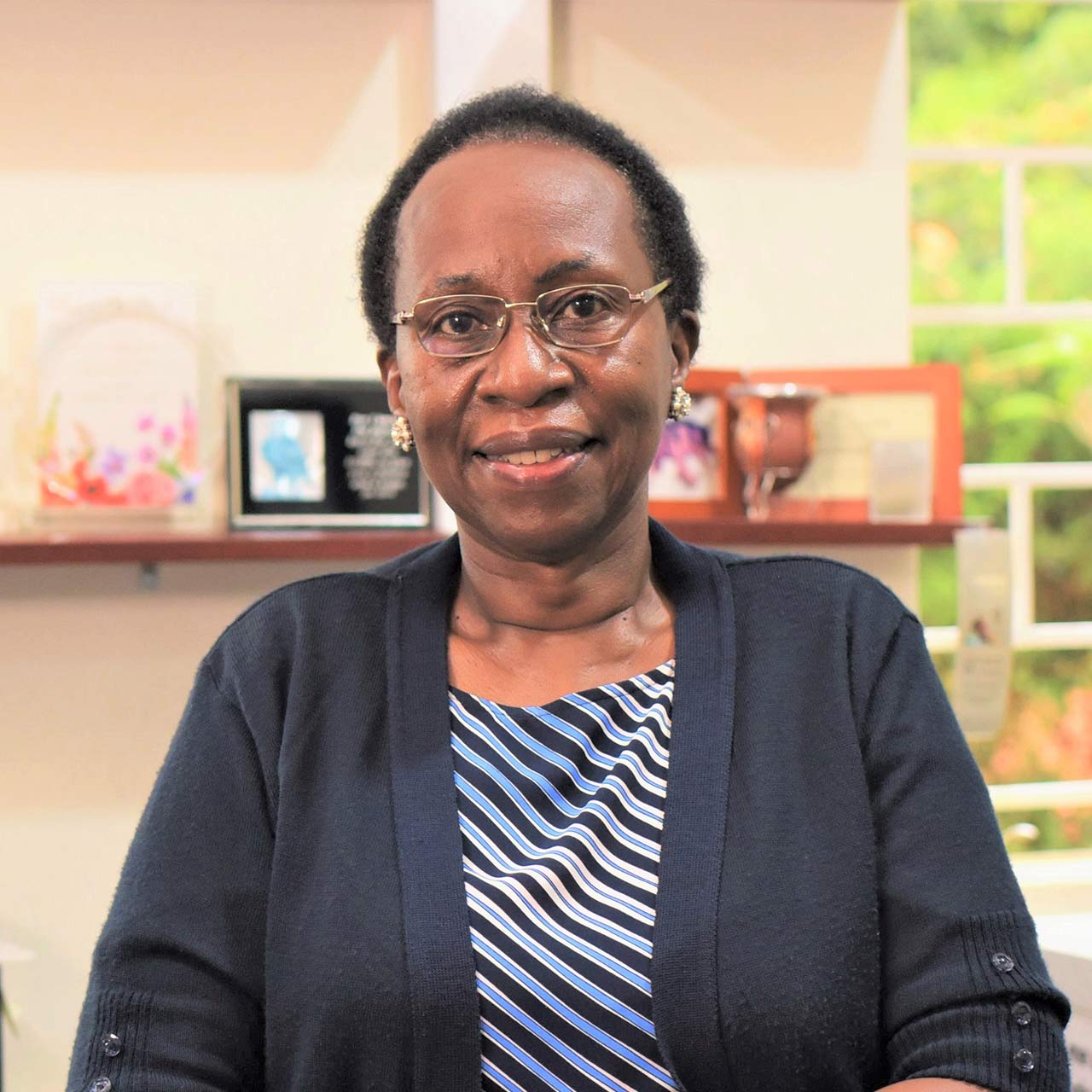
Professor David Serwadda has been offered a lifetime professor emeritus position at Makerere University. This decision was reached at the 489th meeting of Makerere University Council, the supreme governing body of the university, on recommendation and nomination of the chief academic organ of the University, the Senate acknowledging his exceptional contributions to academia.
The prestigious title of Emeritus Professor, is bestowed upon retired professors in line with the university’s policies, aims to retain exemplary scholars who have reached the mandatory retirement age. This is in accordance with the University's Policy and Procedures for The Award of The Title "Emeritus Professor"; The purpose is to retain an academician who has attained his or her mandatory retirement age under the existing Employment Policy of the University.
Pursuant to university policy, an Emeritus Professor is expected to embody a set of key responsibilities, such as mentoring, continuous knowledge generation in his or her field of specialization, and promoting research and publications in peer-reviewed journals.

Professor Serwadda, 67, is an icon of academic excellence, prolific researcher and an expert in infectious disease-focused public health deeply interested in HIV clinical drug trials, HIV epidemiology, infectious disease surveillance, and HIV intervention program assessment. His great contributions have had a significant impact on the academic landscape over the course of a distinguished professional history that extend over 35 years having been appointed in Makerere University in 1993 and gone through the ranks to full Professor. This has been demonstrated in his research endeavors at Makerere University, leadership roles, and comprehensive teaching across undergraduate, master's, and PhD levels.
In 1982, Professor Serwadda received his medical degree from Makerere University after which he went to Newcastle Upton Tyne Medical School in England for a Master of Science in Medicine in 1987. In 1990, he completed his Master of Medicine in Internal Medicine Makerere University in 1990 and subsequently obtained a Master of Public Health (Epidemiology) from the John Hopkins School of Hygiene in the United States in 1991. In recognition of his outstanding leadership in the HIV/AIDS response and his noteworthy scientific accomplishments, John Hopkins University awarded him an honorary doctorate in 2011.
In his illustrious university service career, that started off in the Department of Disease Control and Environmental Health at Makerere University School of Public Health (MakSPH), then Institute of Public Health (IPH). He was director and eventually Dean of the School of Public health for 8 years. Professor Serwadda is commended for his meritorious service to Makerere University he has excelled in teaching, mentorship of students and junior staff made significant contribution to both national and international research. Notable for his resourcefulness, extensive networks, and scholarly integrity, Prof. Serwadda's vast contributions significantly elevated infectious disease research, boasting an impressive repertoire of approximately 400 publications.
He was instrumental in the founding of the Rakai Health Sciences Program, Makerere Walter Reed Project, and the Infectious Disease Institute (IDI) enhancing prominence both domestically and globally by means of innovative research endeavors.
Moreover, Prof. Serwadda's remarkable memberships in eminent professional associations, broad committee participation, and recent appointment as Senior Editor of the acclaimed eLife Journal highlight his worldwide influence and dedication to the promotion of public health.
He is a reviewer of research proposals for; the National Institute of Health, Non-communicable illness in low-middle income countries 2016-; and Wellcome trust, population and public health 2008- and has attracted the University numerous research funds. Currently, he is the chair of the fundraising committee for MakSPH infrastructure, where he initiated the conversation with Johns Hopkins University and worked with the dean to negotiate a partnership that led to in the 1.1 million USD construction grant from Johns Hopkins University for American Schools and Hospitals Abroad (ASHA).
Professor Serwadda has demonstrated outstanding leadership in community service while serving in important roles at Makerere University, including Dean of the School of Public Health (2007–2009) and Director of the Institute of Public Health (2002–2007). Prior, he headed the Department of Environmental Health and Disease Control from 1999 to 2002 and served as the Executive Director of the Rakai Health Sciences Program from 1998 to 2017. He championed the creation of the MakSPH Grants Committee and Office, which he served as its chair until 2021. He currently serves on the Grants Management Committee of the Makerere University Research and Innovations Fund (MakRif).
Several awards and honors have been bestowed upon Professor Serwadda. These include the following: The Visionary Guidance award by Uganda Health Marketing Group (2016); the Outstanding dedication to the HIV and AID response through services to TASO award in 2015; the Makerere University College of Health Sciences, School of Public Health founder; and the visionary and exceptional leadership in nurturing the HIV fellowship PROGRAM - 2014. Award of appreciation given in honor of the exceptional volume of scientific publications in 2013 Distinguished Service Award, British Council, 2008; Pioneer in Behavior-Based HIV Prevention, Harvard University, December 2006; Honorary Doctorate, John Hopkins University, May 2011; Johns Hopkins Bloomberg School of Public Health Alumni Knowledge of the World Award, October 2010.

The Vice Chancellor Professor Barnabas Nawangwe described the duo as long-serving and dedicated academics, who have diligently served Makerere University and Uganda at the College of Health Sciences until retirement.
"By accepting the appointment of Professor Emeritus, both Prof. Philippa Musoke and Prof. David Serwadda have expressed their readiness to allow Makerere University to continue tapping into their expertise and wealth of experience to mentor the next generation of academics and researchers, and to continuously generate knowledge in their fields of specialization, and promote research, publications and innovation. I thank them for their selfless service and congratulate them on this achievement," said Professor Nawangwe.
Professor Philippa Musoke (MBChB, FAAP, PhD) is a US board-certified Paediatric Infectious Diseases specialist in the Department of Paediatrics and Child Health, School of Medicine College of Health Sciences, Makerere University and is currently based at the Makerere University-Johns Hopkins University Research Collaboration in Kampala Uganda. Prof. Musoke chairs the Ministry of Health PMTCT and the paediatric antiretroviral treatment technical subcommittees.

Prof. Musoke has dedicated the past 28 years to teaching at the Makerere Medical School, treating sick children at the Mulago National Referral Hospital, and conducting research at MU-JHU Care Ltd. She has supervised and mentored numerous medical students, postgraduate students including PhD candidates, and junior faculty. At MUJHU, she has mentored and inspired multiple junior investigators, enabling them to become independent investigators. Prof. Musoke is dedicated and committed to excellence in clinical care, training and research.
She is currently the international vice chair of the US, National Institutes of Health (NIH), Division of AIDS, IMPAACT network. Prof. Musoke has published over 150 articles in peer-reviewed journals, presented research findings at national and international conferences, and contributed to the prevention and management of HIV globally. Prof. Musoke is a technical advisor for WHO and other international health organizations.
Since 1995, she has conducted multiple perinatal HIV prevention clinical trials addressing important challenges like the benefit of single dose nevirapine (NVP) to the mother at the onset of labor and her infant at birth to reduce mother-to-child HIV transmission (MTCT) (HIVNET012), infant nevirapine dosing for prevention of breastmilk HIV transmission (HPTN046), and the benefit of triple antiretroviral therapy during pregnancy and breastfeeding in further reducing MTCT (PROMISE).

Compiled by Davidson Ndyabahika

